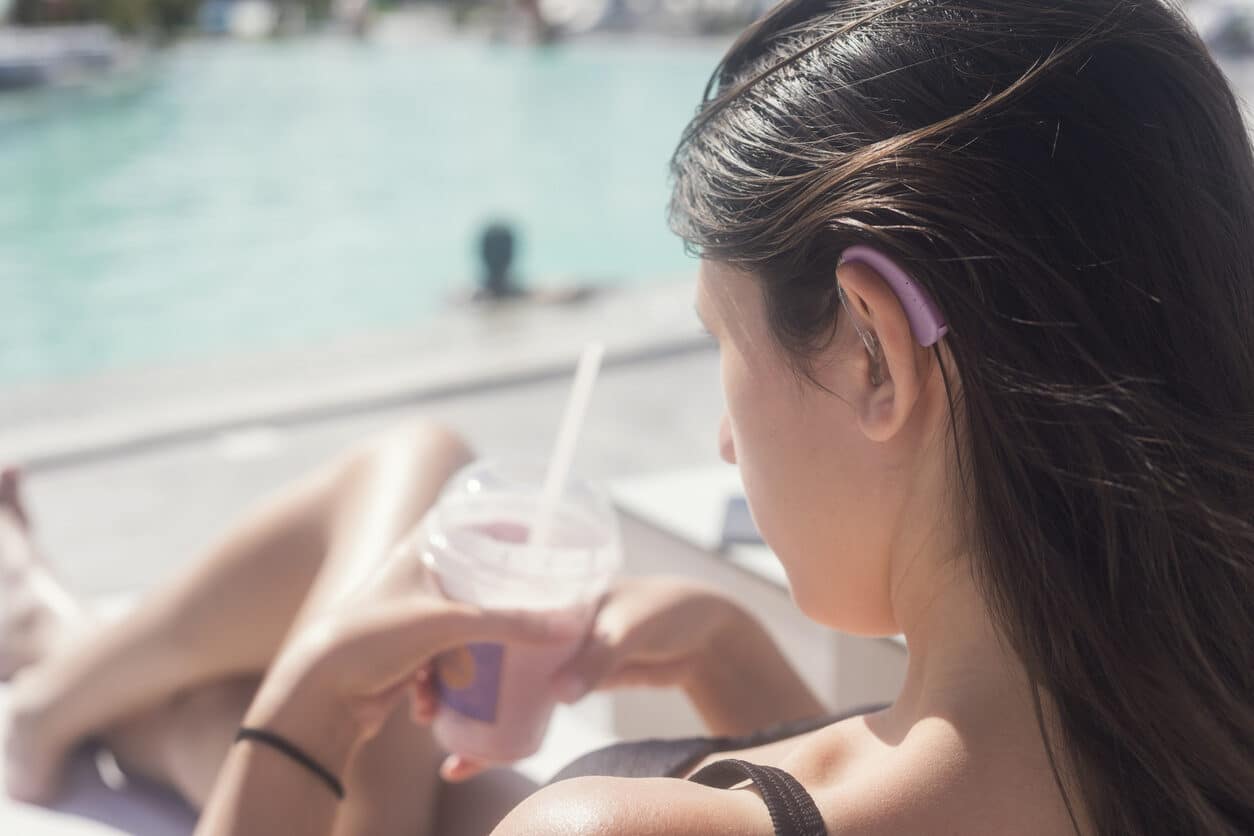Whether you’ve been wearing hearing aids for years or you just got your first pair, you’ve no doubt heard that you need to keep your hearing aids dry. Water can wreak major havoc on your hearing aids, their functionality and their lifespan. So let’s discuss moisture damage and what you can use in the event you do get your hearing aids wet.

Why Is Moisture Hazardous to My Hearing Aids?
Like all electronic devices, water exposure can cause significant damage to hearing aids. The microphone, speaker and amplifier are all exposed, so when hearing aids get wet, these electrical components come in direct contact with the water. Additionally, water can damage the battery. When batteries get wet, they may corrode, which would cause them to leak into other areas of the hearing aid, causing major damage.
There are more ways to get your hearing aids wet than just getting splashed with water. Sweat, humid weather and rain can also cause moisture damage. It’s important to take precautions if you know you’re going to be in an environment with water, humidity or moisture, and dry your hearing aids thoroughly in the event they do get wet.
What Can I Use to Dry My Hearing Aids?
The two main options for removing moisture from hearing aids are dehumidifiers (also sometimes called drying kits) and electric hearing aid dryers.
Hearing Aid Dehumidifier
Dehumidifiers work by removing moisture from the air. They are often in the form of a box or jar, into which you place your hearing aid. Small crystals or silica beads in the jar absorb moisture from the air and the hearing aids. These moisture-absorbing agents will need to be replaced or dried out occasionally. There are also electric dehumidifiers, which may use a gentle heater in addition to the moisture-absorbing agent.
This drying process can take a few hours, so dehumidifiers are an excellent option for drying overnight while you’re not wearing your hearing aids. Doing this every night protects from damage from sustained moisture exposure.
Hearing Aid Dryer
Hearing aid dryers are more active in the drying process than dehumidifiers, making them the ideal choice if your hearing aids have been submerged in water or otherwise gotten very wet. Dryers are an electric tool that uses a mechanism, such as a fan, heater, or UV light, to rapidly dry your hearing aids.
Should I Visit the Clinic?
If you notice signs of moisture damage, it’s a good idea to visit the clinic to get them checked out. Signs of moisture damage may include:
- Muffled or distorted sound
- Hearing aids dying suddenly
- Malfunctioning, such as volume fluctuations
- Visible damage, such as rust
If you notice any of these, contact The House Institute to make a repair appointment.